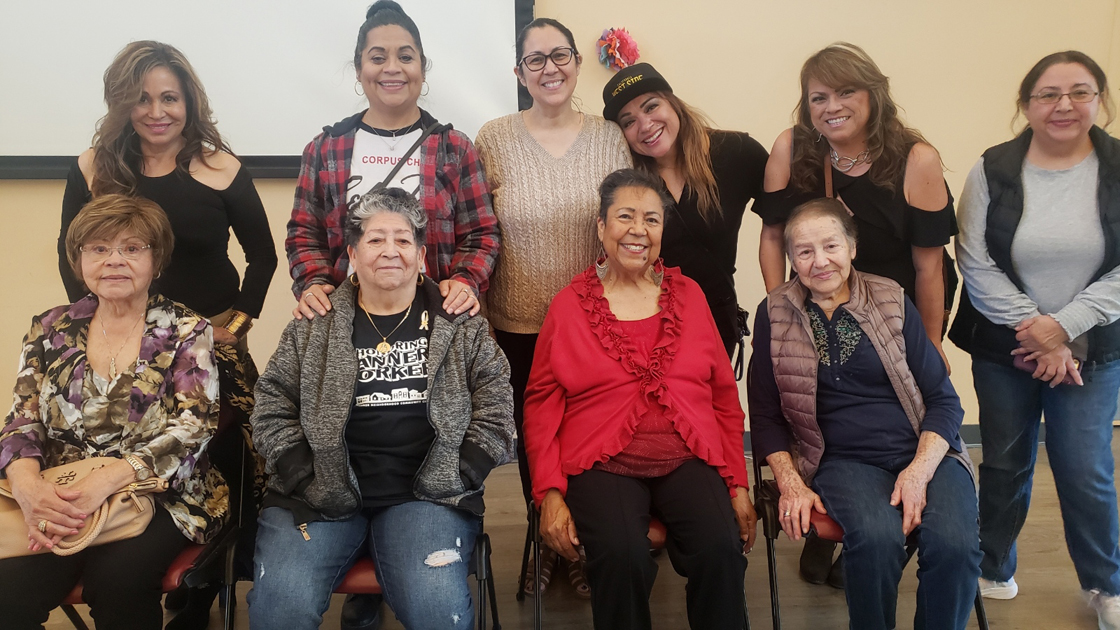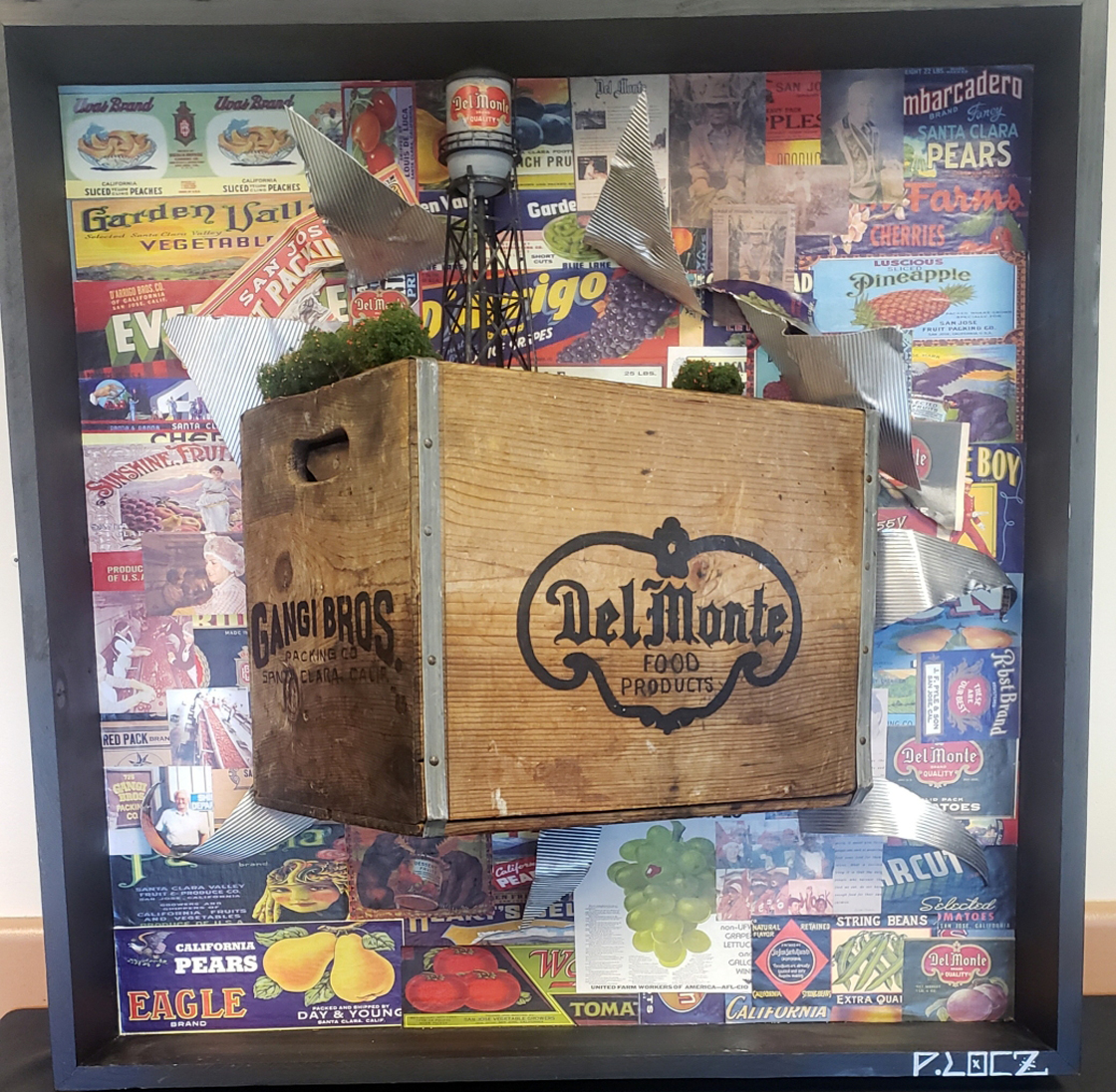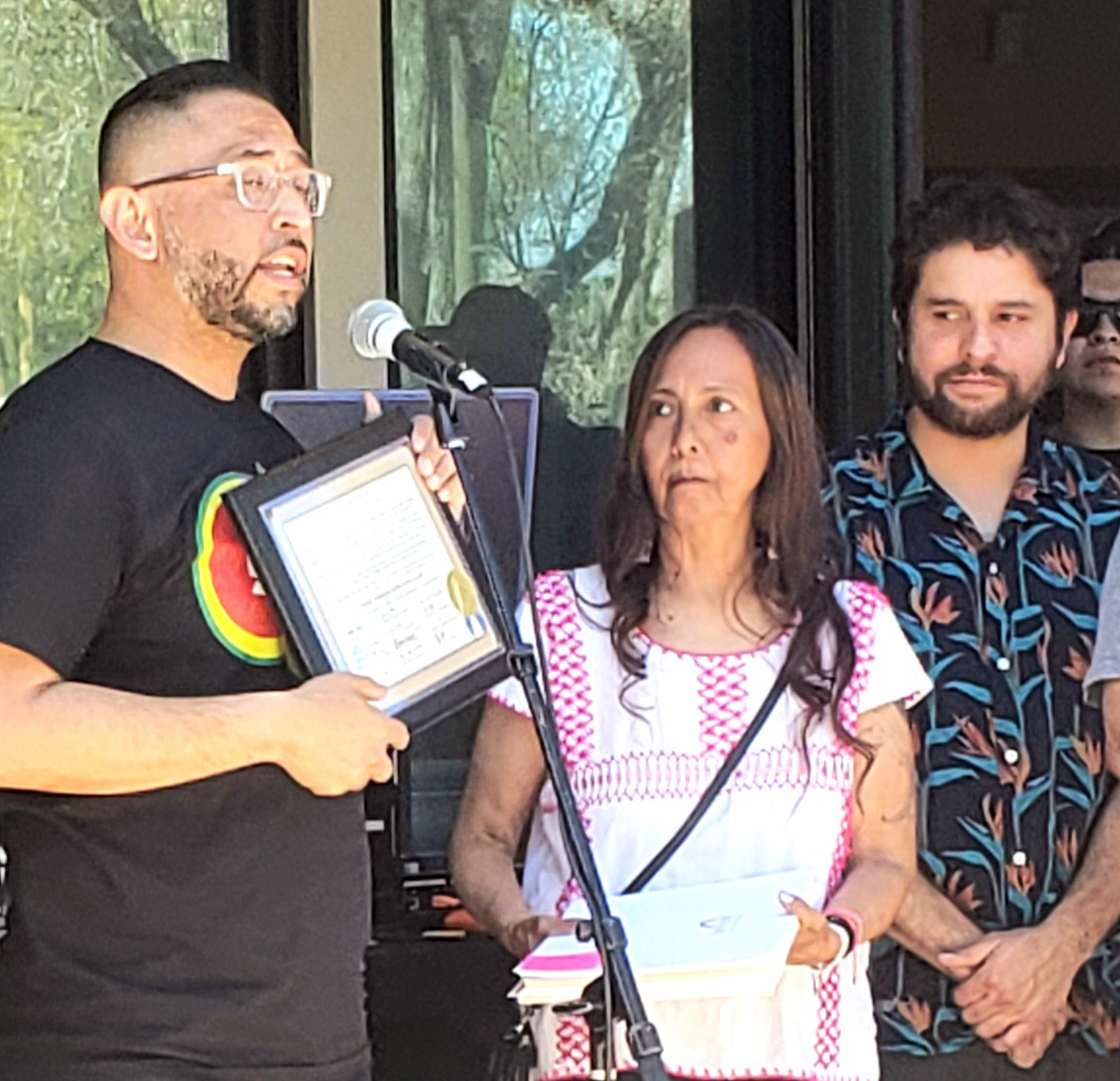By Elena E. Robles
 Cannery retirees with daughters. Seated are retirees Maria Tharaud, Teresa Nunez, Rosalinda Sanchez, Emilia Cuevas, and Teresa Marquez. Standing are family members Maricela Salcido, Norma Martinez, Maria Nunez, Elsa Gutierrez, and Maria M. Ramirez.
Cannery retirees with daughters. Seated are retirees Maria Tharaud, Teresa Nunez, Rosalinda Sanchez, Emilia Cuevas, and Teresa Marquez. Standing are family members Maricela Salcido, Norma Martinez, Maria Nunez, Elsa Gutierrez, and Maria M. Ramirez.
San José, CA – A joyous, almost giddy, festival honoring “Mexican Women of the Canneries” was held at Gardner Community Center on Saturday, April 15th.
The event united hundreds of residents and ex-residents to honor the legacy of local women who had worked in the world’s largest canneries for three generations, and who fought hard through the years to acquire a medical clinic, recreational services and educational opportunities for their children and neighborhood friends.

A coalition of grassroots organizations joined San Jose’s Gardner Neighborhood Association families and the BEFORE SILICON VALLEY Documentary Project for a celebration to showcase the region’s rich Mexican American history and its extensive contributions to local economic growth.“Mexican Agricultural & Cannery Workers of Santa Clara County 1920-1960,” a short documentary by the BEFORE SILICON VALLEY oral history project, was showcased as a soft launch of this extensive research project capturing some of the incredible history of Mexican and Mexican American agricultural workers, civil and labor rights leaders, and pioneers of modern San José.

The choice of locale was perfect. Over 50 years ago, it was here that cannery workers and parents formed the Gardner Advisory and struggled with city officials to open an activity center and park for neighborhood kids. Ignored for years, they finally built their own humble building in the early 1970s which provided a day camp for kids, activities for teens and a senior nutrition program.
The shack was replaced more than 30 years later, in 2004, by the City of San José with the current 12,400 square-foot Gardner Community Center. Although the beautiful building holds the Senior Nutrition Program, it was reclassified a few years ago by the city as a “re-use” center. This resulted in what the neighborhood considers as excessive bureaucracy and red tape. Consequently, the center has been empty and unavailable to the neighborhood children since 2020. You can watch a video on its past vitality at https://www.youtube.com/watch?v=kzGRztGSaFI .

Present was new city councilman Omar Torres who grew up near the neighborhood. He was greeted with loud applause and presented a city commendation and individual certificates for more than 100 women from the greater Gardner area who had worked in the canneries and orchards.
Joining Torres was new city councilman Peter Ortiz, also a San José native and notably missing was councilwoman Devora Davis who now oversees the center and park because of recent redistricting.
Supervisor Cindy Chavez gave brief comments, stating “We honor the leadership of the Neighborhood Association: Pati (Palomares -Mason), Tony (Torres), Robert (Jones), Rudy (Martinez), Armando (Ricardez), and others… because none of this would ever have happened without them. Not the center, the art work, the protection of The Horse Shoe. It just wouldn’t have happened.”

Santa Clara County was once called “The Valley of Heart’s Delight” and was the largest cannery and dried fruit center in the world. Women in the canneries and those working in the fields overcame the intimidation of racism and sexism for their entire careers until the last cannery closed in 1997. They prevailed through the climate of repression during the “Red Scare.” They endured segregation, strikes, family separations through deportations, and Labor-busting tactics for over a century. The true histories and dramas of our cannery workers could inspire a Netflix series.
But the women of the canneries also formed strong and lasting friendships at work; rose above the difficulties of the job and the hardships of life to spark a historic civil and labor rights movement that continues to shape our society today. They took up harsh working conditions to help raise their families, putting up with discrimination and now leaving a legacy of activism with momentum.
The BEFORE SILICON VALLEY Documentary Project will conduct five more presentations at sites throughout Santa Clara County and post interviews, photographs, and mini documentaries into a San Jose State University library site at www.livrary.sjsu.edu/b4sv.
For more information, or to leave contact information on a local ex-cannery worker, contact the project technical director Fernando Pérez at Fernjperez7@gmail.com.






